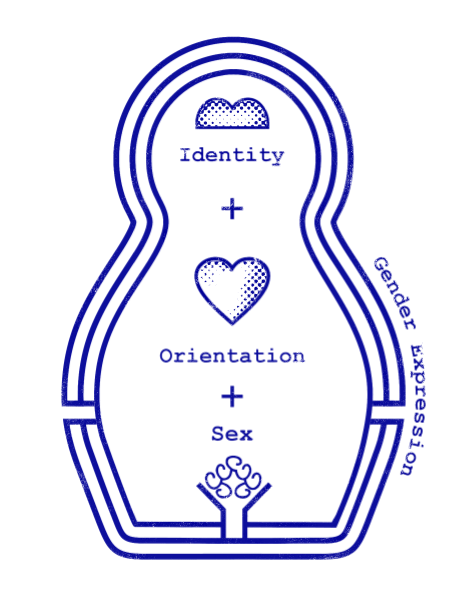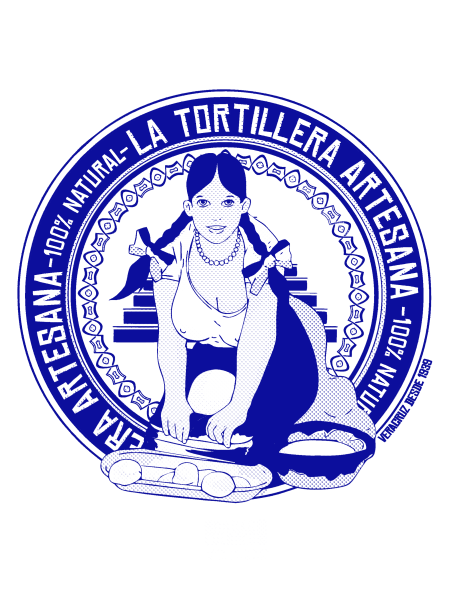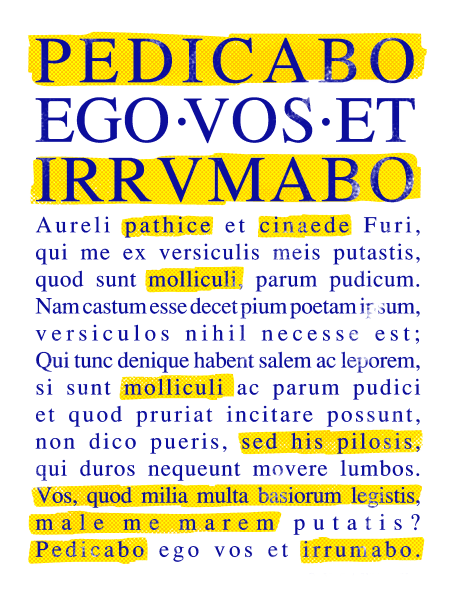Gay Dictionary Swahili
How to say gay in Swahili
Below are the words of our Swahili Gay Dictionary that we will expand in new editions. If you know any more, please, contact us. But first some information about the language and where it is spoken.
Swahili is a language of the Niger-Congo family spoken mainly in Tanzania and Kenya, and adjacent areas of Uganda, Mozambique, South Democratic Republic of Congo, Rwanda, Burundi, Somalia, and Zimbabwe, reaching forty-five million speakers.

Two Men About to Kiss, photo by Joshua McKnight from Bedbible. Free use.
The situation of the LGBT community in Tanzania and Kenya is bad, since sexual diversity, or knowledge of it, is punishable by between 5 and 14 years in prison or life imprisonment, in the case of Tanzania. Religions get society to see homosexual behavior as something detestable and its terms and expressions for gays are polarized between the less stigmatized top and the bottom, the worst of the worst. Although as always, these countries tend to see homosexual behavior as something that comes from outside, there are references from the 19th century that point to the opposite.
Final translation of this dictionary by Ruth Carballo Gallego.
.atoz_sorting_style { overflow: hidden; text-align: center; border-bottom: 1px dashed gainsboro; border-top: 1px dashed gainsboro; } .atoz_sorting_style ul { list-style: none !important; } .atoz_sorting_style ul li{ float: left; margin: 6px; } .atoz_sorting_style ul li a{ text-decoration: none; } .atoz_sorting_style ul li a:hover{ text-decoration: underline; } .nav-previous { float: left; width: 50%; } .nav-next { float: right; text-align: right; width: 50%; } .p_list { background: white; padding: 10px; margin: 10px 0px; font-size: 20px; list-style: none; } .p_list a { text-decoration: none; } .pagination { border-bottom: 1px dashed gainsboro; border-top: 1px dashed gainsboro; padding: 8px 0px; } .pagination a { padding: 0px 8px; text-decoration: none; } .pagination a:hover { text-decoration: underline; } #A:before { content: “A” !important; } #B:before { content: “B” !important; } #C:before { content: “C” !important; } #D:before { content: “D” !important; }#E:before { content: “E” !important; }#F:before { content: “F” !important; }#G:before { content: “G” !important; }#H:before { content: “H” !important; }#I:before { content: “I” !important; }#J:before { content: “J” !important; }#K:before { content: “K” !important; }#L:before { content: “L” !important; }#M:before { content: “M” !important; }#N:before { content: “N” !important; }#O:before { content: “O” !important; }#P:before { content: “P” !important; }#Q:before { content: “Q” !important; }#R:before { content: “R” !important; }#S:before { content: “S” !important; }#T:before { content: “T” !important; }#U:before { content: “U” !important; }#V:before { content: “V” !important; }#W:before { content: “W” !important; }#X:before { content: “X” !important; }#Y:before { content: “Y” !important; } #Z:before { content: “Z” !important; }- +
Anti
The word Anti is an adaptation of the English word “aunt”. Both in English and Swahili the word is slang for homosexual men, although in the English case, it is used to refer to a middle aged gay. In the Swahili language it is used to name the feminine homosexual men although it is also used with the meaning of “woman” or “beautiful girl”. This is both an import and an adaptation of the English slang.
+Baba askofu
Baba askofu is a curious expression, with a recently coined homosexual meaning, which would translate as “father bishop.” Originally, it is an expression used as a sign of respect towards the representatives of the Christian churches, with an extended use outside of the religious context, where it points to people who stand out for their position, generosity, and altruism. Mama askofu would be the equivalent expression for women.
However, and following the scandals of sexual abuse of children perpetrated by church priests, this expression, in a unique metonymic turn, has evolved to point out the top homosexual man in a determined context. In fact, Baba askofu is one of the few expressions, together with Basha or Mende, that indicate the top position in homosexual anal intercourse, in a region where adopting the top or the bottom role within homosexual behavior means everything.
+Basha
Basha is one of the most common and significant words in Swahili slang to name active homosexuals or men. And we mean men who are “really, masculine” but who, occasionally, or not so much, have sex with “female” men.
The term derives from the Turkish word paşa, also found in Arabic as باشا [bāšā] and in Spanish as bajá or pasha. It means governor, man with a position of high command in the army or the administration, etc. Within the Swahili speaking areas it is also used to name the king of a deck of cards.
Its use as a homosexual slang word goes back at least to the 80s and we found it in several dictionaries of the time, such as the Standard Dictionary of Swahili, which also states that the term does not presuppose homosexuality, but it is rather referred to the “man who sodomizes”, disregarding the gender of the couple.
The sexual partner of the basha would be the shoga. Some authors have inferred a model structured on power, money, the age of each one of the parties, etc, in the basha/shoga relationship. Nevertheless, and based on what we have been able to find out and suppose, it had much more complexity at the feelings level.
So, we are fronted once again with the idea of Mostacero (Spanish, Peru) or Manyak (Arabic), which show that one thing is homosexual behavior and another very different one, homosexuality.
Variations: Mabasha.
Related: Shoga.
Read also: Homosexual behavior and homosexuality (Article of our blog)
+Bwabwa
The expression Bwabwa is a euphemistic derivation of the word “ubwabwa”, that translates into “undercooked rice”. It is used against bottom homosexual men. As in many other places in the world, the idea of a homosexual man (especially if he is bottom) as a “half-made” man or a half-man (the other half is a woman), usually has an equivalent in local slang.
+Chakula
The literal English translation of the expression Chakula is the noun “food” and it is used to name bottom homosexual men. Finding a clear origin to the expression seems an impossible task. However, based on what has been investigated, we dare to point out that it could be due to the generic concept word chakula = food as opposed to nyama = meat, whose connotations associated with heterosexual sex and women, in particular, are common in other languages and also in Swahili, where we find for example that nyama is also a slang for vagina. Bottom homosexuals, therefore, would be an alternative to a real meal, simple nourishment to get rid of hunger. But hey, it’s just a theory.
Related: Mostacero. Gay Dictionary (Peru)
+Choko
The expression Choko belongs to the Tanzanian street slang called “lugha ya mitaani” (languages of the city’s neighborhoods) and it is used to refer to bottom homosexual men. The origin of the term and its relationship with homosexuality seems confusing and various possibilities are pointed out.
Some derive it, without further ado, from the French word “chocolat”, perhaps because of the youthfulness of the so-called and the color of their skin. Others point to the Swahili word “choco”, which means oven. Its sexual connotation would derive from the form of such ovens, similar to that of the butt.

The word choko could have its origin in the word chokora which is the name of the street or homeless boys.
Untitled Photo by Leo D’lion used under CC BY 2.0 /resized and optimized.However, the theory that stands out is that the term “choko” would be nothing more than the abbreviation or shortening of the Tanzanian word “chokolaa” or “chokoraa”, which derives from the Kenyan Sheng slang “chokora”, all of them used to refer to street or homeless boys.
Although in principle there was not too much relationship between this term and homosexual behavior, we have found several studies that indicate that homosexual practices (including anal penetration) among street boys were the norm (at least in the geographical scope of the study ) and not transactional sex as one might think. They were a complex pattern of affective and sexual relationships framed within a model called “kunyenga”, that we could translate as “comfortable sex”. Boys distinguish this from the so-called “real sex ” being this one heterosexual sex.
Also very striking is the fact that the “kunyenga” is justified as an alternative to homosexuality since there seems to be a belief, fostered by the church, that jerking off causes or is a sign of a homosexual deviation. Therefore, and to avoid this tremendous danger of being carried away by the demon of homosexuality hiding behind masturbation, there was no better way to let some steam off than playing fake sex with a good friend or fellow of misery.
With that being said, and without more information available, we will leave it to the readers to decide which is the most likely origin of the term “choko” to name homosexual men in Swahili.
+Fuga ndevu
In principle, the expression Fuga ndevu refers to homosexual behavior, meaning “the one who lives or cohabits with a homosexual man”. It applies, like most terms we have dealt with, to bottom homosexual men. Some sources point to a humorous euphemism as a source, based on a more literal translation of the type “the one who cultivates/bears a beard”.
+Gashi
Gashi is a term that was collected as a synonym for a beautiful or desirable woman at the middle of the last century. Its origin seems to be the Japanese word “geisha”. It appears as a synonym for homosexual man or queen in the “Swahili-English Slang Pocket-Dictionary in the 80s.
+Kaka poa
Kaka poa is the most general expression for gays we have found, commonly used in both Kenya and Tanzania and where the individual’s top or bottom role is secondary. It would literally translate as a “relaxed” or “superb” (poa) brother (kaka). This slang has its equivalent for lesbians in the expression “dada poa“.
+Kaumu lut’i
Kaumu lut’i is an expression no longer in use that we wanted to rescue as a curiosity, from a French – Swahili dictionary belonging to the last decade of the 19th century. Kaumu lut’i is translated as “the people of Lot” and evidently refers to the biblical history of Sodom. It is an expression that we have also found in other languages, such as the word لوطي (Lūṭiyy) from Arabic, meaning sodomite.
Related: Watu wa Sodom
See:
· I Survived Sodom (Funny Collection)
· I love Sodom (Protest Collection)
· Bible and homosexuality: the word of god (LGBT History).+Khanithi
In principle, Khanithi is one of the oldest terms we have found in this language to refer to homosexual men. It already appeared in the first Swahili dictionary that was published at the end of the 19th century (“A Dictionary of the Swahili Language” Krapf, 1882). This expression derives from the Arabic word ḵanīṯ (خَنِيث) which is translated into English as “effeminate”. In its first mention in the aforementioned dictionary, Khanithi is associated not only with the terms sodomite and effeminate, but also with male impotence, or rather, with impotent men.
This association between impotent man and bottom homosexuality, along with effeminacy or even weakness, is recurrent, and has remained until recent times in the Arabian Sea region where Tanzania and Kenya are located, although anyone who has visited our dictionary knows that we can find similar ideas in many other parts and languages of the world. A homosexual man as a half-man, as an incomplete man, as a man with a defect was, and unfortunately remains, rather a universal idea: Why else would one man allow penetration by another? Why would a man give up his dominant or top position in life and sexuality?
In any case we are facing a term that places special emphasis not only on the sexually bottom attitude of the homosexual men, but also and perhaps above all, on his effeminacy or even the transvestism of the Kanhiti, who usually dress as women or in a feminine way and which is associated, not only with the idea of a third sex, but in more recent times, with the western idea of drag queen. A very recurring idea and of which we have infinite examples throughout the world and history: homosexuality, transgender, transvestism are often inseparable or indistinguishable. If you are not a real man, you are a woman, or something similar. There’s no more.
The word Khanithi, also written as hanithi, haniti or hanisi, or plural as mahanithi, is preferably used in Tanzania while in Kenya the equivalent would be mashoga or shoga.
+Kubumziwa
Since Swahili is a language whose use extends throughout different countries, we can not speak of an only Swahili gay slang, but we find differentiated jargons depending on the area in which we are. While the most common would be the Sheng of Kenya and the Lugha ya mitaani (“languages of the city’s neighborhoods” or “street language”) of Tanzania, there are also more local jargons and Kubumziwa is a slang term that belongs to one of these.
This expression fits in the so-called “Coasti Slang” and more specifically in Mombasan jargon. A jargon developed towards the 80s and related to the increase of Western female sex tourism (European sugar mamas), especially of German women who, along with their bikinis and their desire for a sexual memory, brought certain words.
One of those German words is “bumsen” which means to fuck and that, as you can see, quickly joined the vocabulary of the local “beach boys” in the form of the expression “kubumzen“.
From this new word, or rather, from the verb, derives the word kubumziwa, to which the affix -iw (passive derivative affix of the Swahili language) is added, giving rise to the “kubumziwa” slang term, which names the action of being penetrated by a homosexual man. In this exotic and half commercial scene of international and interracial sex, the term used for fucking a foreign woman derives into the one meaning being fucked by a European sugar daddy. We are not, as in most cases, facing a name or even an adjective that is used to name, ridicule or insult homosexual men, but we are dealing with a verb that tells us about a particular time and place. How can we translate this into the English language? Suggestions are accepted.
Variation: Bumziwa.
+Kuchu
Swahili is a language spoken mainly in Kenya and Tanzania. However, we also find speakers in some bordering areas such as Uganda. Kuchu seems to be a term of Swahili origin that some associate with the word “makuchu” but that nevertheless is not a proper part of speech or specific jargon of the language, but a kind of “Swahiliism” of Uganda where about 40 languages are spoken. Swahili, despite being an official language, is not only a very minor language, but since the time of the dictatorship of Idi Amin Dada it has a reputation for being the language of thieves and rascals.
It is used within the Uganda LGBT community as the equivalent of the English word “queer” though and may also have pejorative use.
We would like to take advantage of the opportunity offered by this entry to spread the word about a great documentary called “Call me Kuchu”, which shows the terrible situation that LGBT people have to live in Uganda.
See: Documentary «Call me Kuchu» (commented on a talk show).
Read also: El Proyecto Pilla Pilla y la perversión.(Spanish)
+Mende
There is no language worth its salt without its jail slang … and there is no jail slang where there is no reference to homosexual behavior. In this case, the word Mende is used to talk about the man, the husband, the male who sustains, maintains and protects one or more “wives” (boys) who give themselves to him in a more or less voluntary way. Its literal translation into English is cockroach.
+Mfiraji
Mfiraji is a term that is part of the standard Swahili. Its most appropriate translation would perhaps be sodomizer. It basically refers to the top one in anal intercourse between men, although it is not a concept that relates to sexual identity, orientation, or bisexuality. It is a very common idea or differentiation throughout the world (see mostacero), and we can find this same approach in other more local terms of Swahili as Basha. It is one thing to penetrate a man and another to stop being straight.
Variation: Mfilaji
+Mke si mume
Mke si mume is another very old expression that we also find in studies of ethnology and dictionaries of the late 19th century. In some areas like Bardanza, it is used to name both men and homosexual women, and in others, it means sexually receptive man. The English translation of this expression cannot be simpler, but the interpretation is much more complicated. In all texts, it is translated as “woman not man” or “woman is not a man”. However, Swahili dictionaries define Mke as wife and mume as a husband. This is something that we have not been able to clarify and for which we expect help from Swahili speakers.
+Mlawiti
The English translation of the expression Mlawiti is a homosexual man.
+Msagaliwa
The expression Msagaliwa literally refers to men who grind Liwa, an aromatic wood, to produce a cosmetic paste. This word is used to refer to the eunuch, the weak man, henpecked, impotent, who acts as a servant of women. The word Khanithi also expresses this sense of an incomplete and defective man, and it is used to point to homosexual men. It is an expression that derives from the Bantú language, according to Porter M.A. in his work “Talking at the margins: Kenyan discourses on homosexuality”
+Msenge
Msenge is an insult that seems to be quite common in the area of Tanzania, and it is the equivalent of the classic “sissy.” It is found in the middle of the last century written as senge, referring to the single man as its first meaning, but also to the bottom and feminine homosexual, the one who is sodomized, and to queens. It is also associated with transsexuality and transgender identity, and we have even seen it translated as “whore.”
+Mshumaa
The literal English translation of the word Mshumaa is the candle and is used to refer to bottom homosexual men.
+Mtoto wa watu
Mtoto wa watu is a rather complicated expression concerning its origin and intention, which could literally be translated as a boy/son/boy of men. On the one hand, it is used to point to bottom homosexual men, and on the other, it is the expression used in the Swahili version of the Bible to refer to Jesus Christ as “son of men” in the sense of the son of humanity. How do you go from Jesus Christ to a bottom homosexual man? At the moment we can only speculate in two ways, both of them having a humorous touch due to their relationship with the character of the bible.
Outside the documentation referring to homosexuality properly, we found a clue that perhaps could provide some more light on the meaning of this expression, because although the literal term for wife is Mke, we usually find the construction “mke wa mtu” when we speak, for example, of what in English would be translated as a married woman or even someone’s wife (we would not say, for example, “do not flirt with her, she is a wife” but we would say “she is a married woman”, she is the wife of, etc).
When replacing Mke by Mtoto in the phrase, we find a euphemistic pun in which the meaning of a child/son/boy of a man, makes much more sense as equivalence to someone’s wife/a man’s wife and that we could translate into the English language as “someone’s little boy” when this someone is a man, and an emotional-sexual relationship is established between them. A theory that we also saw reinforced when we found that in prison slang bottom homosexual men are named, among other things, mtoto, clearly in the sense of wives.
Another possibility to explain the idiom Mtoto wa watu, and related to the previous one, is the literalness of the phrase that could also be translated as “boy or little boy of men” with the sense of puppet of men, of several or many men.
Variation: Mtoto wa mtu.
+Mtu wa jinsia moja
Mtu wa jinsia moja is a neutral term for homosexual man. It literally means man (mtu) of the same sex (wa jinsia moja) and we can find the same construction with homosexual couples “wanandoa wa jinsia moja” or homosexual marriage “Ndoa za jinsia moja”.
+Mumenke
Mumenke is one of the words we find in the Swahili language since the late 19th century. Its literal translation into the English language is man-woman, a term that brings us closer to the idea of the third sex or intermediate sex present in many cultures.
+Nding’oing’o
We have only found a reference of the expression Nding’oing’o, and although it is something that we do not usually do, we have decided to include it in this dictionary hoping Kenyan readers can confirm its use. According to the information at our disposal, it is a word that, like the word “mende,” would be part of Kenyan prison jargon. It would literally be translated into the English language as a “dung beetle” in clear reference to the excrements that this insect surrounds itself and feeds on. We seem to understand that Nding’oing’o, as “mende”, refers to the “male” alpha prisoner but don’t take our word for that. Although this expression reminds us of others like Mostacero, Mayate, and Cucarrón, we will continue looking for explanations…
+Pimbi
Pimbi is a term that belongs to Kenyan slang jargon, specifically to Nairobi. It is used, not only to refer to homosexual men but it is also used as dumb or not very clever. It is a typical example of the homophobic prejudice that assigns negative characteristics such as stupidity, nonsense or pussy-whipped to homosexual men, for the simple fact of being homosexual. These qualities suggesting little manhood area also found in other different terms in Swahili, like “boka”, “mbwiga”, “mnyela”, “ndula”, “poyoyo” where the sense of dumb or pussy-whipped overlaps with that of effeminate and/or homosexual.
As for its origin and meaning, “pimbi” is, in Swahili standard, the name of a type of rodent from that region of Africa known in English as dassie (Hyracoidea).
+Rambuza
As far as we are aware, Rambuza is a term with which the bottom homosexual is attacked and especially the one who is effeminate. Its concrete meaning escapes us but we have found people who relate it to the verb ramba or (ku) lamba, a contribution from Portuguese to Swahili. Its translation into the English language is to lick. If we were to be right, we can deduce what the idea is.
+Shikishwa ukuta
Shikishwa ukuta is one of the few Swahili expressions we have found where euphemistically and in our opinion, a more or less explicit reference to anal sex is made. It would literally translate as the one who holds the wall, a clear image of when anal intercourse is practiced standing. The bottom person puts his hands against the wall to stand the ramming, as if he were holding it. Shikishwa ukuta is an expression similar to “fence uprooters” (Arracheurs de Palissades) of the French language, in which the image is the bottom holding on to a fence, which moves with each charge until the fence is pulled out.
+Shobo za kisista du
Shobo za kisista du is an expression that refers to homosexuality or homosexual behavior and that we can literally translate as girls problem. Not much more to say. Classic feminization of male homosexuality.
+Shoga
Shoga is an expression used to name the homosexual or effeminate men who is the sexual partner of the basha. It is a term related to the feminine, since it is also used to indicate the best qualities of a woman and also to name the best friend of a woman.
Variation: Mashoga
Related: Basha.+Watu wa Sodom
Watu wa Sodom is an expression referenced in an English – Swahili dictionary of the early 20th century. Its translation would be “men of Sodom,” in reference to the reviled biblical city, meaning sodomites.
Related: Kaumu lut’i
See:
· I Survived Sodom (Funny Collection)
· I love Sodom (Protest Collection)
· Bible and homosexuality: the word of god (LGBT History).







Can you help us with this dictionary?
You can do it in two ways, sending an email with some words you know, and also, spreading our work on your social networks.
Share it!